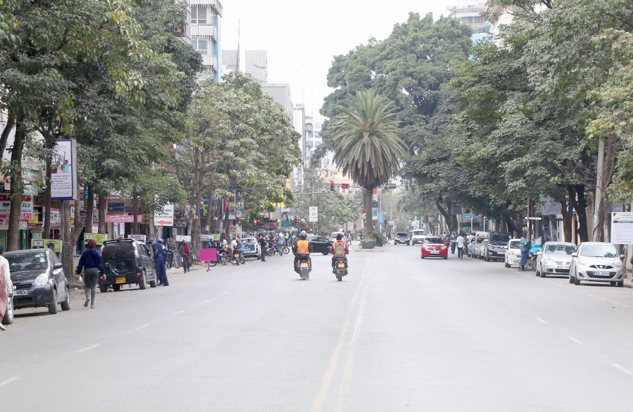Ingenious Kenyans devise survival ways

As if adopting the adage that tough times call for tough measures, Kenyans have devised smart ways to survive the harsh economic realities facing them even as the government warns of tough times ahead.
And with the government seemingly reneging on its promise to stabilize the economy to save its people from further anguish, desperate Kenyans, particularly those living in towns where they have to spend money to access all their basic items, have moved fast to adopt to survive the hard-economic times.
On Monday, the government warned that fuel prices may reach a high of Sh300 per litre soon, dampening any hopes of economic relief any time soon.
In a move likely to have adverse effects on millions of Kenyans, employers have started opting for casual labourers to avoid paying the enhanced rates imposed on the National Social Security Fund (NSSF), National Health Insurance Fund (NHIF), Pay As You Earn (PAYE) and the Housing Fund.
The Federation of Kenya Employers (FKE) says some of its members have been forced to put more employees on casual contract terms to avoid costs that would come with having employees permanently.
Small enterprises have begun rejecting mobile money payments in favour of cash as they look to evade aggressive tax compliance measures.
Most shops, bars, restaurants, small and Midsize Enterprises (SMEs), supermarkets and several other business outlets have dropped receiving payments via Mpesa after the government imposed higher levies.
KRA crackdown
Aware of the move, Kenya Revenue Authority (KRA) immediately warned that it will soon launch a crackdown on businesses opting out of mobile money payments from Safaricom, the telco that operates mobile money service M-Pesa and its business-specific payment solution Lipa Na M-Pesa (Pay with M-Pesa).
The shift by businesses away from M-Pesa payments is a remarkable turn in a country known for pioneering mobile money, and where the service has become the common mode of financial transactions.
James Wanyoike who runs a retail shop at Ngoingwa village in Thika, Kiambu county said that while his small shop has never faced intense examination of his mobile money transaction records, the yearn for more remittances by the government got him take down his Lipa na M-pesa poster to be safe.
With the introduction of KRA field officers, small businesses which have not traditionally faced intense scrutiny of their mobile money payment records are worried about forking out more in taxes amid harsh economic times.
“The harsh economic times call for deliberate actions if one has to survive. The government is targeting those who operate small shops despite our meagre earnings. The only way for them to get information about our transactions is through our Mpesa transactions which I have personally dropped. Customers must now pay for items purchased in cash because we fear being harassed,” said Wanyoike.
High cost of living
Even having taken down cashless transactions, Wanyoike regretted that purchases at his shop have significantly reduced following the high cost of living that he said has an effect on the purchasing power of most Kenyans. And with the cost of fuel ever rising, most Kenyans are no longer using their personal vehicles to go to work owing to the high fuel costs.
A journalist working for a media house in Nairobi yesterday told People Daily that the cost of paying for parking which has risen to Sh300 per day, fuelling his vehicle on a daily basis and maintaining it will leave him with nothing at the end of the month.
“I have been paying Sh300 for parking, the fuel prices are no longer bearable and as a result, I cannot use my car anymore to work. Nowadays I’m using public means to get me to the station and to avoid being noticed by the public who perceive me differently, I unusually put on a cap,” said the reporter who sought anonymity.
As a result of the contingency measures taken by those with cars, KRA says the fuel revenues for the period between July and September had a performance rate of 84.8 per cent, resulting in a deficit of Sh12.9 billion against the set target.
Appearing before a parliamentary committee last month, KRA Commissioner General Humphrey Wattanga disclosed that Kenyans have in the last year been slowing down on consumption of petroleum products due to the current high prices.
In some other cases, more ingenious Kenyans have taken their cars to garages where they have converted them to use gas instead of the more costly fuel. And for those staying in Nairobi and Mombasa and having to travel long distances to their rural homes, shuttles and other PSVs have come in handy.
“For me to travel from Nairobi to Busia, my car requires 56 litres of fuel, which translates to Sh11,800 one way. For to and from, I require Sh22,000 for transport, besides other costs,” says Brian Oduor, who works in the city.
Contrary to the former Transport minister John Michuki’s rules, most public service vehicles are now determining the number of passengers to carry on certain routes in a bid to compensate for the losses they incur as a result of increased fuel prices.
Michuki rules
For instance, 14-seater matatus in most parts of the country are now carrying 18 passengers against their lawful capacity. Matatu operators insist that the situation has been necessitated by hiked fuel cost and will continue to cushion them from losses.
“We are carrying 18 passengers per matatu contrary to the 14 stipulated by the law to try and reduce our cost of operations especially after the cost of fuel increased unbearably. The government should reduce the taxes on fuel failure to which the situation will continue to worsen,” James Mburu, a matatu operator in Thika said.
For workers who commute from the estates to town everyday, some have taken to trekking, while others have bought motorcycles and bicycles for personal use.
Most workers have also devised a system where they report to work as from 9 in the morning and either leave early by 3pm or late around 9pm at a time which the fares have been reduced.
Most Kenyans have at the same time changed consumption patterns by reducing the quantity and quality of purchases while others have shifted from new to second-hand clothes and shoes. Shops selling new clothes are recording heavy losses.
Troubled by inability to meet monthly spending, a section of other Kenyans have moved to cheaper houses and have at the same time been planning for every expenditure to avoid unnecessary spending and or impulse buying.









